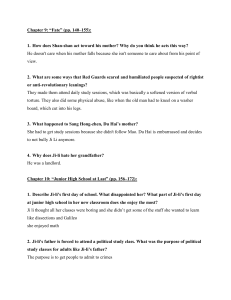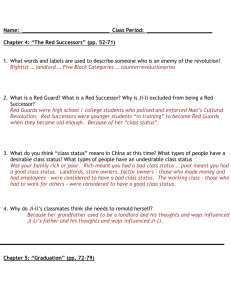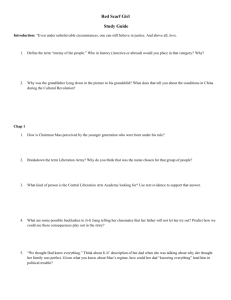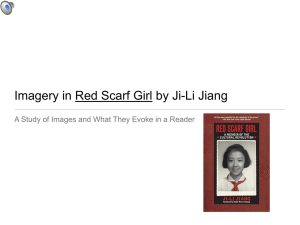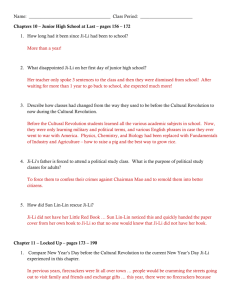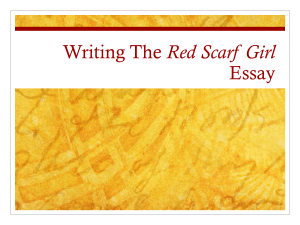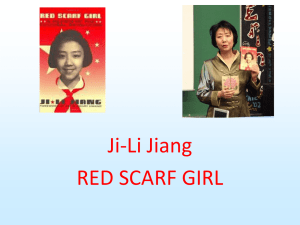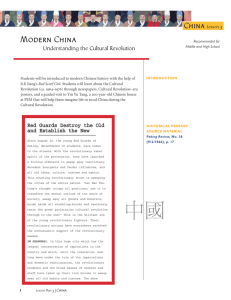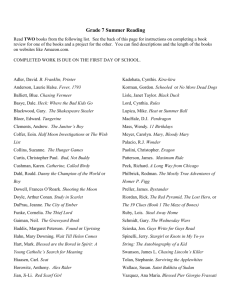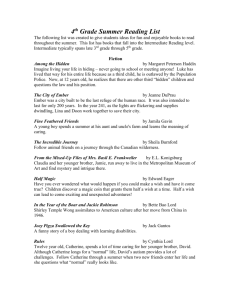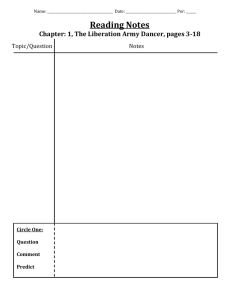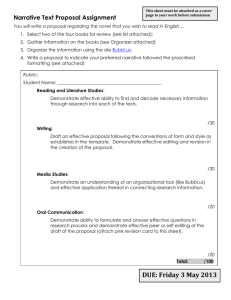Red Scarf Girl
advertisement
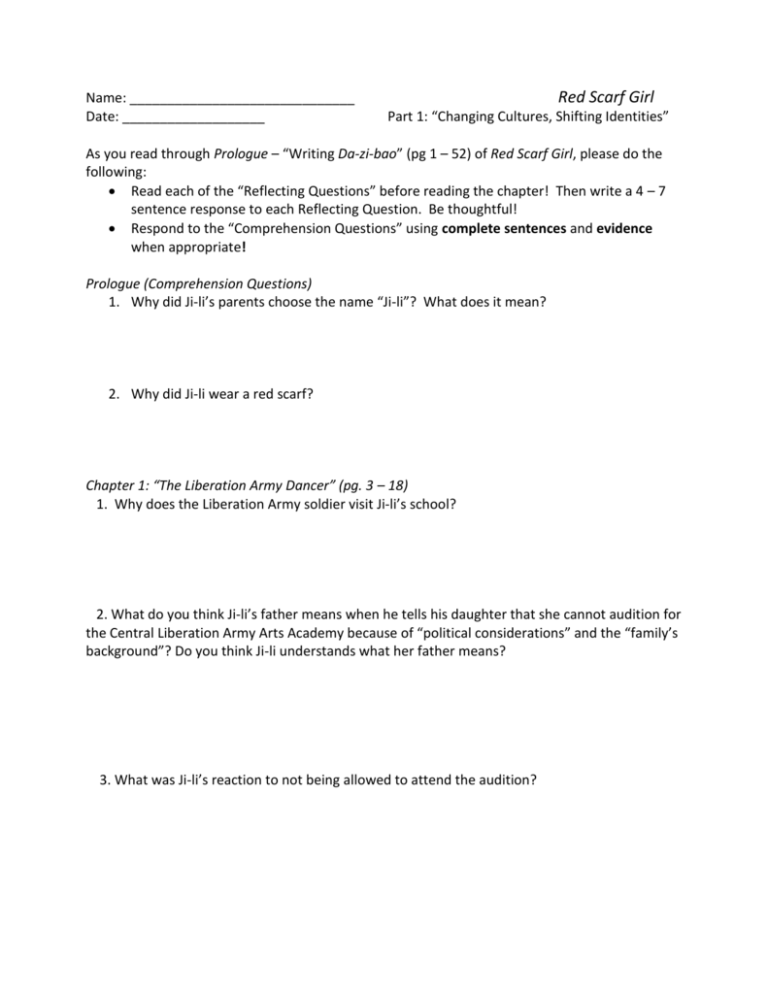
Name: ______________________________ Date: ___________________ Red Scarf Girl Part 1: “Changing Cultures, Shifting Identities” As you read through Prologue – “Writing Da-zi-bao” (pg 1 – 52) of Red Scarf Girl, please do the following: Read each of the “Reflecting Questions” before reading the chapter! Then write a 4 – 7 sentence response to each Reflecting Question. Be thoughtful! Respond to the “Comprehension Questions” using complete sentences and evidence when appropriate! Prologue (Comprehension Questions) 1. Why did Ji-li’s parents choose the name “Ji-li”? What does it mean? 2. Why did Ji-li wear a red scarf? Chapter 1: “The Liberation Army Dancer” (pg. 3 – 18) 1. Why does the Liberation Army soldier visit Ji-li’s school? 2. What do you think Ji-li’s father means when he tells his daughter that she cannot audition for the Central Liberation Army Arts Academy because of “political considerations” and the “family’s background”? Do you think Ji-li understands what her father means? 3. What was Ji-li’s reaction to not being allowed to attend the audition? 4. List at least five reasons why Ji-li describes her life as “nearly perfect.” 5. (Reflecting Question) On page 1, Ji-li recites this Chinese saying popular in the 1960s: “Heaven and Earth are great, but greater still is the kindness of the Communist Party; father and mother are dear, but dearer still is Chairman Mao.” What do you think the above quotation means? What does it tell you about the relationship between the Chinese people and their political leaders at the time? Chapter 2: “Destroy the Four Olds!” (pp. 19–37) 1. Ji-li often refers to how life was different in the past. List at least two examples of how life “used to be” in Shanghai, according to Ji-li. 2. What were the “Four Olds”? Why did Chairman Mao want the Four Olds to be destroyed? What examples does Ji-li give of destroying the Four Olds? 3. Humiliation is a theme in this memoir. Find an example of a moment when someone was being humiliated. Who was being humiliated? By whom? For what reason? 4. (Reflecting Question) On page 25, Ji-li says, “But Grandma, we have to get rid of those old ideas, old culture, old customs, and old habits. Chairman Mao said they’re holding us back.” What are some examples of Four Olds provided in this chapter? Do you think old ideas, culture, customs, or habits have the power to hold people back? Why or why not? Chapter 3: “Writing Da-zi-bao” (pp. 38–51) 1. What is a da-zi-bao? What conflict did Ji-li confront when she was asked to write a da-zi-bao? What did she do? 2. On page 36, Ji-li remarks, “The world had turned upside down.” What had happened to make Ji-li feel this way? 3. What happens to Ji-li’s Aunt Xi-wen? How does Ji-li react to this treatment of her aunt? How do you think she feels about her behavior? 4. What is written about Ji-li on the da-zi-bao? 5. (Reflecting Question) In the chapter “Writing Da-zi-bao,” students complain about the lack of fairness in the education system. What are some of their arguments? Do you agree or disagree with these ideas?
